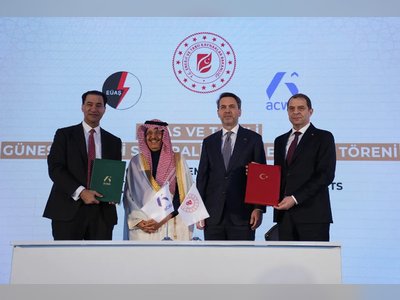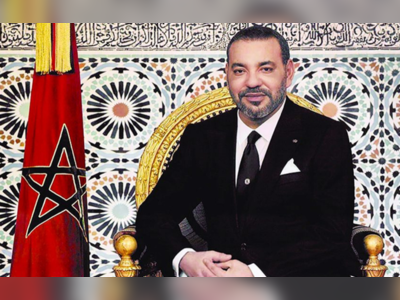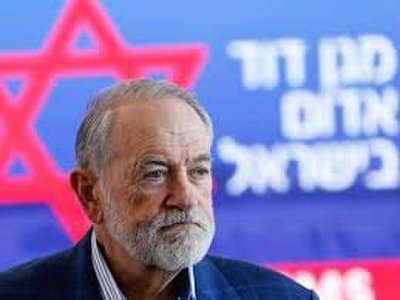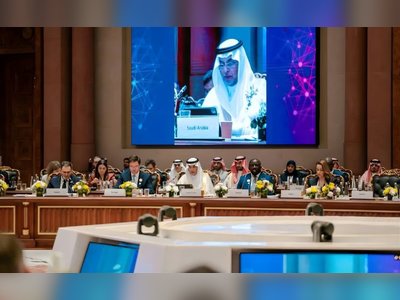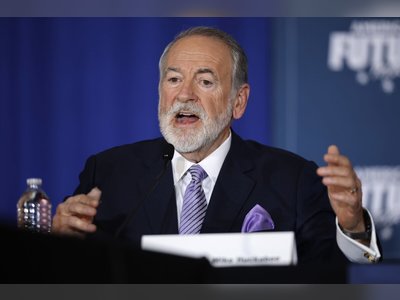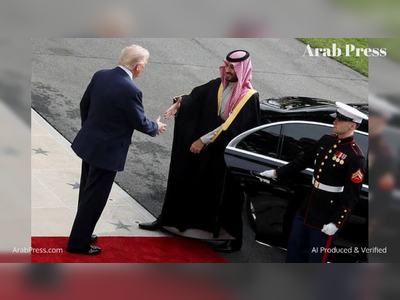US Resumes Arms Deliveries to Ukraine Amid Ceasefire Proposals
Kremlin and US officials engage in talks as military aid resumes to support Ukraine's defense against Russia.
US arms deliveries to Ukraine resumed on Wednesday, following the Trump administration's decision to lift a prior suspension of military aid amid the ongoing conflict against Russian invasion.
This resumption occurred as officials awaited the Kremlin's response to a proposed 30-day ceasefire, which Ukraine has endorsed and which was proposed by Washington.
Kremlin spokesperson Dmitry Peskov noted the importance of not rushing the process of responding to the ceasefire proposal, stating that Moscow requires more detailed information from the US before forming a position.
Historically, the Kremlin has opposed any measures that do not lead to a permanent cessation of hostilities and has rejected concessions in the past.
US President Donald Trump has expressed a desire to end the three-year conflict, applying pressure on Ukrainian President Volodymyr Zelensky to engage in negotiations.
The decision to resume military aid followed a meeting between US and Ukrainian officials in Saudi Arabia, reflecting a marked shift in the US administration's stance.
During an extensive discussion with reporters, Trump remarked, "it’s up to Russia now" as the US administration seeks to persuade Moscow to agree to the proposed ceasefire.
He indicated that achieving a ceasefire could represent a significant step towards resolving the ongoing violence, which he referred to as a "horrible bloodbath."
Trump also alluded to the possibility of imposing additional sanctions on Russia, emphasizing, "We can, but I hope it’s not going to be necessary."
Secretary of State Marco Rubio, who led the US delegation in Saudi Arabia, stated that Washington is committed to establishing multiple points of contact with Russia to evaluate President Vladimir Putin's readiness to negotiate a resolution to the conflict.
Rubio refrained from providing specific details on potential next steps should Putin opt not to engage.
The US is aiming for a halt to Russian attacks on Ukraine as an initial measure, according to Rubio, who made comments during a refueling stop in Shannon, Ireland, en route to discussions in Canada with G7 leaders.
White House press secretary Karoline Leavitt confirmed that National Security Adviser Mike Waltz held a conversation on Wednesday with his Russian counterpart, while also announcing Trump’s special envoy, Steve Witkoff, would travel to Moscow for discussions with Russian officials.
Reports indicate Witkoff is anticipated to meet with Putin later this week, although details surrounding the meeting remain unconfirmed.
Zelensky argued that the proposed 30-day ceasefire would provide both sides the opportunity to formulate a comprehensive plan to conclude the war, including security assurances for Ukraine.
He highlighted the necessity of addressing technical aspects regarding the monitoring of a potential truce along the approximately 1,000-kilometer front line, where the use of small drones has become prevalent.
Arms deliveries to Ukraine have already commenced through a Polish logistics center, with foreign ministers from Ukraine and Poland announcing the resumption of aid via a NATO and US hub in Rzeszow, Poland, located about 70 kilometers from the Ukrainian border.
This assistance is deemed critical for Ukraine's forces, which are facing challenges in countering Russia's superior military capabilities.
Furthermore, the US has restored Ukraine’s access to unclassified commercial satellite imagery from Maxar Technologies, which assists Ukrainian military planning and monitoring of Russian movements.
Separately, Ukrainian officials confirmed that they are currently out of the longer-range Army Tactical Missile System (ATACMS), having received fewer than 40 such missiles from the US. The lack of available ATACMS has been acknowledged by both US and Ukrainian defense sources.
Russian officials have conveyed skepticism regarding the ceasefire talks, with senior senator Konstantin Kosachev asserting that any negotiations should reflect Russia’s conditions rather than those of the US. Another lawmaker commented that while Russia is not keen on prolonging the conflict, it will not accept negotiations without genuine engagement from the United States.
Conversations between Russian and US intelligence leaders have also taken place, with the head of Russia's foreign intelligence service, Sergei Naryshkin, reportedly discussing areas of mutual interest and crisis resolution with CIA Director John Ratcliffe.
This resumption occurred as officials awaited the Kremlin's response to a proposed 30-day ceasefire, which Ukraine has endorsed and which was proposed by Washington.
Kremlin spokesperson Dmitry Peskov noted the importance of not rushing the process of responding to the ceasefire proposal, stating that Moscow requires more detailed information from the US before forming a position.
Historically, the Kremlin has opposed any measures that do not lead to a permanent cessation of hostilities and has rejected concessions in the past.
US President Donald Trump has expressed a desire to end the three-year conflict, applying pressure on Ukrainian President Volodymyr Zelensky to engage in negotiations.
The decision to resume military aid followed a meeting between US and Ukrainian officials in Saudi Arabia, reflecting a marked shift in the US administration's stance.
During an extensive discussion with reporters, Trump remarked, "it’s up to Russia now" as the US administration seeks to persuade Moscow to agree to the proposed ceasefire.
He indicated that achieving a ceasefire could represent a significant step towards resolving the ongoing violence, which he referred to as a "horrible bloodbath."
Trump also alluded to the possibility of imposing additional sanctions on Russia, emphasizing, "We can, but I hope it’s not going to be necessary."
Secretary of State Marco Rubio, who led the US delegation in Saudi Arabia, stated that Washington is committed to establishing multiple points of contact with Russia to evaluate President Vladimir Putin's readiness to negotiate a resolution to the conflict.
Rubio refrained from providing specific details on potential next steps should Putin opt not to engage.
The US is aiming for a halt to Russian attacks on Ukraine as an initial measure, according to Rubio, who made comments during a refueling stop in Shannon, Ireland, en route to discussions in Canada with G7 leaders.
White House press secretary Karoline Leavitt confirmed that National Security Adviser Mike Waltz held a conversation on Wednesday with his Russian counterpart, while also announcing Trump’s special envoy, Steve Witkoff, would travel to Moscow for discussions with Russian officials.
Reports indicate Witkoff is anticipated to meet with Putin later this week, although details surrounding the meeting remain unconfirmed.
Zelensky argued that the proposed 30-day ceasefire would provide both sides the opportunity to formulate a comprehensive plan to conclude the war, including security assurances for Ukraine.
He highlighted the necessity of addressing technical aspects regarding the monitoring of a potential truce along the approximately 1,000-kilometer front line, where the use of small drones has become prevalent.
Arms deliveries to Ukraine have already commenced through a Polish logistics center, with foreign ministers from Ukraine and Poland announcing the resumption of aid via a NATO and US hub in Rzeszow, Poland, located about 70 kilometers from the Ukrainian border.
This assistance is deemed critical for Ukraine's forces, which are facing challenges in countering Russia's superior military capabilities.
Furthermore, the US has restored Ukraine’s access to unclassified commercial satellite imagery from Maxar Technologies, which assists Ukrainian military planning and monitoring of Russian movements.
Separately, Ukrainian officials confirmed that they are currently out of the longer-range Army Tactical Missile System (ATACMS), having received fewer than 40 such missiles from the US. The lack of available ATACMS has been acknowledged by both US and Ukrainian defense sources.
Russian officials have conveyed skepticism regarding the ceasefire talks, with senior senator Konstantin Kosachev asserting that any negotiations should reflect Russia’s conditions rather than those of the US. Another lawmaker commented that while Russia is not keen on prolonging the conflict, it will not accept negotiations without genuine engagement from the United States.
Conversations between Russian and US intelligence leaders have also taken place, with the head of Russia's foreign intelligence service, Sergei Naryshkin, reportedly discussing areas of mutual interest and crisis resolution with CIA Director John Ratcliffe.




